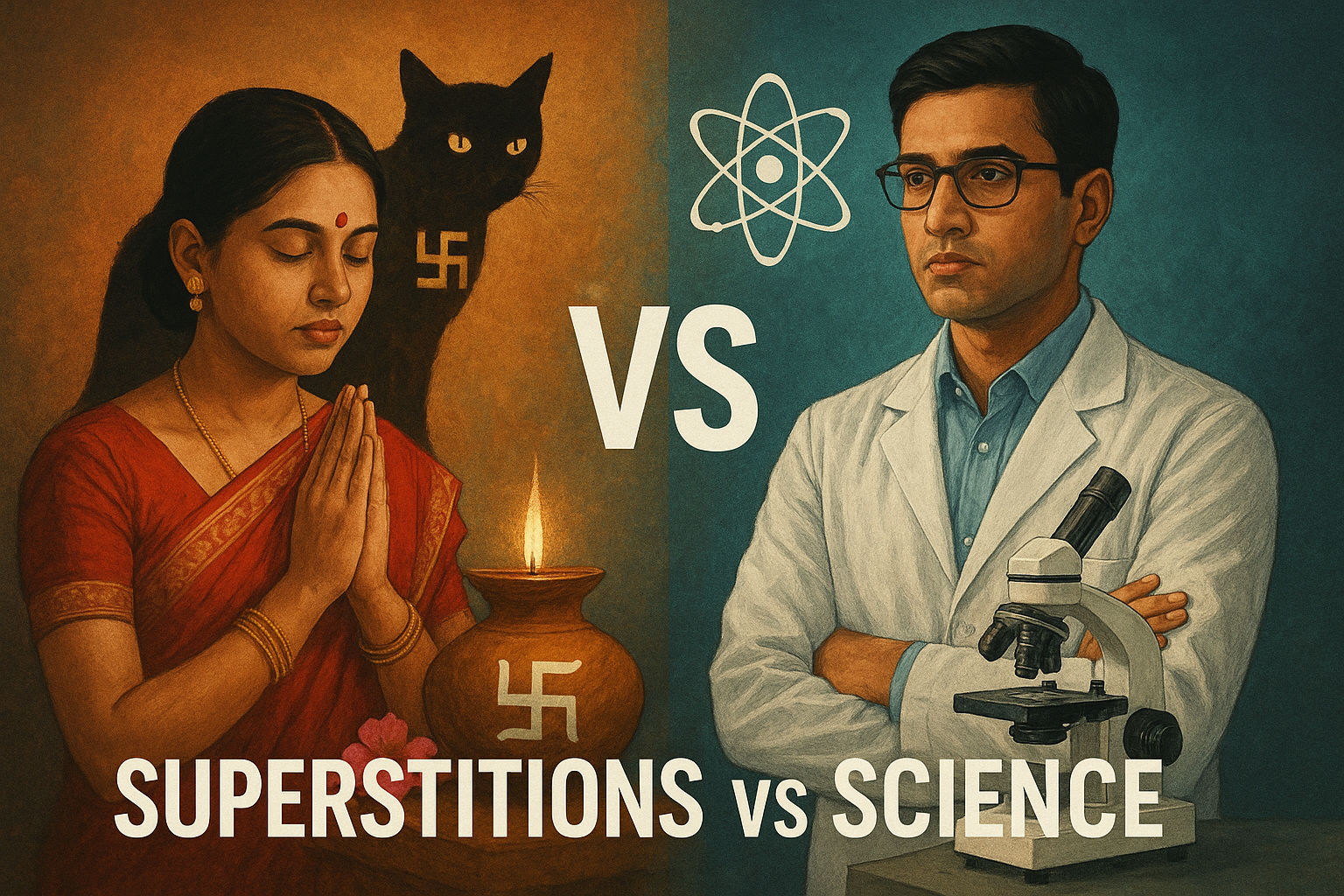India is a country with a rich cultural heritage and a diverse population. While science and technology have made significant progress in India, superstitions still play a significant role in the lives of many Indians. In this article, we will explore the concept of superstitions and science, how they differ, and where India stands in terms of faith and scientific thinking.
What are Superstitions?
Superstitions are beliefs or practices based on irrational or supernatural thinking. They often involve a sense of fear or awe and can be influenced by cultural, social, or personal factors. Superstitions can manifest in various ways, such as:
– Belief in omens and auspicious times: Many Indians believe in the importance of auspicious times and dates for important life events, such as weddings or new business ventures.
– Worship of supernatural entities: India has a vast array of supernatural entities, including gods, goddesses, and spirits, that are worshipped and revered by many.
– Use of talismans and amulets: Many Indians use talismans and amulets, such as rudraksha beads or gemstones, to ward off evil or bring good fortune.
What is Science?
Science is a systematic and rational approach to understanding the natural world. It involves the use of observation, experimentation, and evidence-based reasoning to develop and test hypotheses. Science has led to numerous breakthroughs and innovations that have transformed our lives, from medicine and technology to transportation and communication.
How are Superstitions Different from Science?
Superstitions and science differ in several key ways:
– Rationality: Science is based on rational thinking and evidence-based reasoning, while superstitions often involve irrational or supernatural thinking.
– Empiricism: Science relies on observation and experimentation to test hypotheses, while superstitions often rely on anecdotal evidence or hearsay.
– Falsifiability: Scientific theories are open to falsification and revision based on new evidence, while superstitions often resist change or criticism.
Where Does India Stand?
India is a complex and diverse country, and its stance on superstitions and science reflects this complexity. While many Indians are deeply rooted in scientific thinking and rational inquiry, others continue to hold strong superstitious beliefs.
– Faith and spirituality: India has a long history of faith and spirituality, and many Indians believe in the importance of spiritual practices and rituals.
– Scientific progress: India has made significant progress in science and technology, with numerous scientific institutions and research centers.
Where Does India Faith On?
India’s faith is diverse and multifaceted, reflecting the country’s rich cultural heritage. Many Indians place a strong emphasis on:
– Hinduism: Hinduism is one of the major religions in India, and many Indians follow Hindu customs and traditions.
– Other faiths: India is also home to significant populations of Muslims, Christians, Sikhs, Buddhists, and Jains, among others.
Conclusion
In conclusion, India’s stance on superstitions and science reflects the country’s complex and diverse cultural landscape. While superstitions continue to play a significant role in the lives of many Indians, science and rational thinking have also made significant progress. As India continues to develop and grow, it is likely that the interplay between superstitions and science will continue to evolve.
Ultimately, finding a balance between faith and reason, tradition and innovation, will be crucial for India’s progress and development. By embracing scientific thinking and rational inquiry, while also respecting the country’s rich cultural heritage, India can harness the power of both superstitions and science to build a brighter future for all its citizens.
By: Debi Prasad Rath










